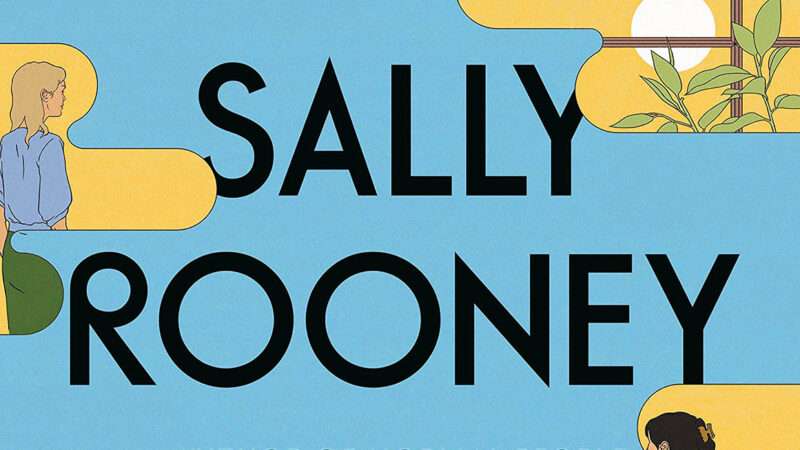
We’re long past the point in the COVID-19 pandemic when politicians are doing much more in response to viral scares than engage in rituals to soothe a fearful public and enhance their own power. With the new omicron variant spreading across the world, travel restrictions seem to be the response of choice because they’re politically popular. Never mind that closing borders is ineffective at anything other than further burdening already hobbled families and economies. The actual danger posed by omicron remains uncertain, but the policy response is as pointless as it was preordained.
South Africa’s Health Ministry announced the discovery of the at-the-time-unnamed B.1.1.529 variant of COVID-19 on November 25. What that means is still unclear and probably will remain so until more cases are found and studied. “There is preliminary evidence suggesting that Omicron may have potential immune escape and/or possibly higher transmissibility,” according to the World Health Organization, while some South African doctors report “very mild symptoms” including fatigue and body aches among their mostly young patients. Nevertheless, given the dearth of information, people did what they do best: They lost their shit.
New York Gov. Kathy Hochul (D) promptly declared a state of emergency granting her extraordinary power. More worryingly, a world already suffering severe disruptions started closing its borders in irrational ways. Following in the footsteps of the United Kingdom, the U.S. banned travelers from South Africa and seven neighboring countries, even though omicron was already in the Netherlands and elsewhere well before the variant was revealed to the world. In fact, the new variant was well-established in the countries announcing travel restrictions, including the U.S.
“The new case demonstrates that there is at least some local transmission of the Omicron variant and that it had arrived in the U.S. before the Biden administration imposed travel restrictions on Botswana and South Africa — where early cases of the variant were detected — and six neighboring countries,” Stat reported of a case found in Minnesota.
Official reaction seemed crafted more to further separate families and impoverish an already troubled world than to address a bug that was already loose. Health experts make exactly that point.
“Travel restrictions may play a role in slightly reducing the spread of COVID-19 but place a heavy burden on lives and livelihoods,” the World Health Organization’s Africa office warned as travel bans proliferated. “If restrictions are implemented, they should not be unnecessarily invasive or intrusive, and should be scientifically based.”
The warning that restrictions on movement carry their own costs and aren’t particularly effective isn’t new; health experts said the same thing years before COVID-19 appeared when they considered ways of slowing the spread of new varieties of flu.
“The results of our systematic review indicate that overall travel restrictions have only limited effectiveness in the prevention of influenza spread,” according to a 2014 article in the Bulletin of the World Health Organization. “Only extensive travel restrictions – i.e. over 90% – had any meaningful effect on reducing the magnitude of epidemics. In isolation, travel restrictions might delay the spread and peak of pandemics by a few weeks or months but we found no evidence that they would contain influenza within a defined geographical area.”
Of course, omicron has already spread to dozens of countries. Travel restrictions at this point aren’t going to delay anything except the already-interrupted flow of goods and people needed to keep the world functioning. So, what’s the point of closing borders when it’s too late to keep the bug out? The real effect of otherwise pointless measures is to accumulate power to politicians who covet just that, and to appease a public that demands somebody do something about a virus that shows every sign of becoming a permanent part of life.
Earlier this week, 78 percent of respondents to a Morning Consult poll favored imposing travel restrictions on countries where omicron has been found. “60 percent of adults said they think travel restrictions on countries with confirmed cases of new variants will help stop the spread of the virus in the United States,” the pollsters added.
Stopping the spread of the virus in the U.S. with restrictions on travel from elsewhere would be quite a feat given that omicron is already here. But public officials gain office by winning elections, not assessments of logical reasoning. So, we get not just bans on travel from a subset of countries where omicron was detected early, but new testing requirements on anybody else who might want to visit from overseas. We’ll also get the consequences of new curbs on trade and travel.
“The current round of restrictions has already reduced travel and dampened consumer confidence,” Patricia Cohen noted in The New York Times. “Omicron’s threat to the recovery is just the latest in a series of zigzags that the world economy has endured since the coronavirus began its march across continents last year,” she added.
“We are not yet in stagflation,” commented Alicia Garcia Herrero, chief Asia Pacific economist with Natixis SA, a French financial firm. “But one more year without cross-border mobility and related supply chain disruptions might push us there.”
So, what do we do about the latest, but almost certainly not the last, COVID-19 variant in a world that’s grown weary of waiting for a return to normality that may never come? After all, recent months have seen protests flare up in Europe and elsewhere against lockdowns, mask orders, vaccine mandates, and the like. There’s nothing about omicron that suggests people will be any happier with an extension of curbs on their lives.
“Modifying and improving vaccines to deal with emerging variants will be a perpetual challenge, but one that essentially mirrors our yearly battle with the flu,” argues Annabel Denham of Britain’s Institute of Economic Affairs. “At some point we’ll have to stop battering our economy and accept that this is, quite possibly, as good as it gets.”
“As good as it gets” may be a hard sell to fearful members of the public and politicians grown accustomed to stretching their power. But learning to live with an ever-morphing virus must be better than continuous, impoverishing disruptions without obvious benefit.
The post Omicron Brings Another Round of Pointless Travel Restrictions appeared first on Reason.com.
from Latest – Reason.com https://ift.tt/3DlHHMu
via IFTTT



